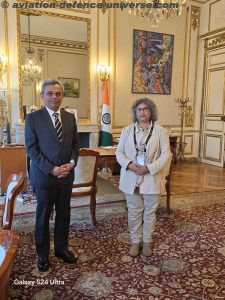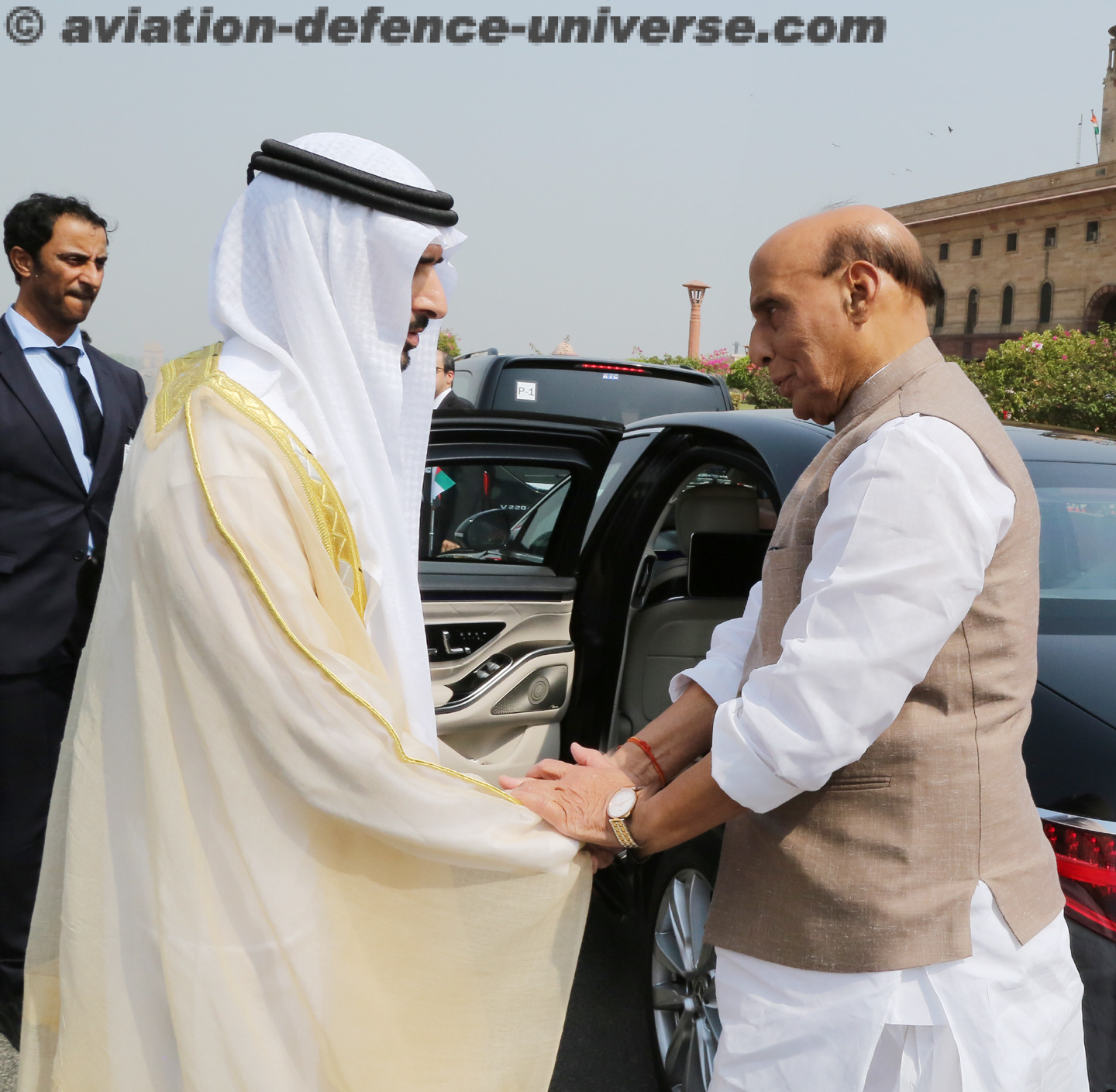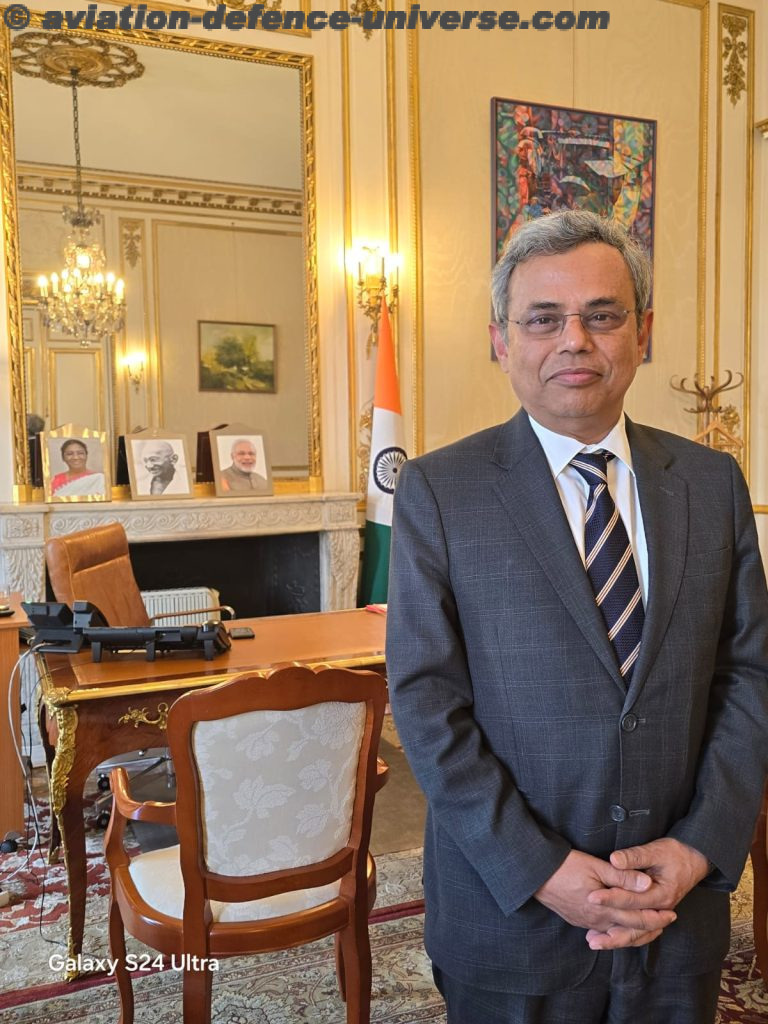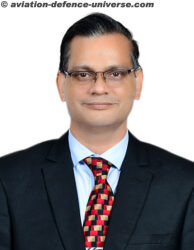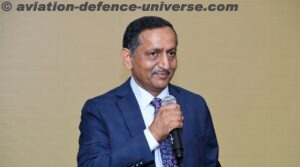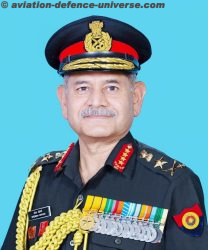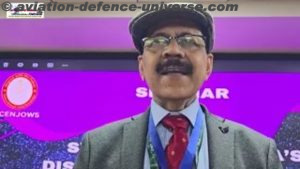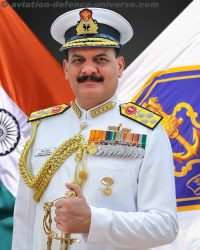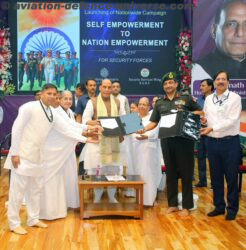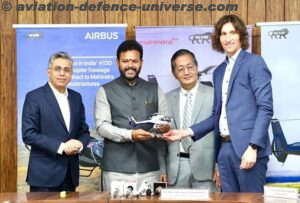- Unprecedented Reciprocity of Modi & Macron’s Visits Cement Indo-French Ties
- Strategic Vision Horizon 2047 charts path for Future Defence Partnerships
- Counterterrorism, Cybersecurity, and Space: Expanding Indo-French Defence Cooperation
- Increased Military Exchanges and Joint Exercises
By Sangeeta Saxena
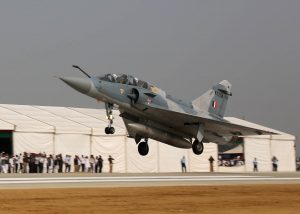 “We’ve had every generation of French military aircraft, but they have a very wide network of industry supply chains. And the most important thing is, perhaps more than any other country, they are willing to do what we would like them to do, which is to work with us on the full range of capabilities from design to certification, to build a truly indigenous capacity in India. And, you know, and you see that with all the major partners. And I think that’s and their licensing policy is the most, you know, secure one from our point of view. We have never seen any kind of irritant or disruption,” stated Ambassador Jawed Ashraf Ambassador of India to France , in an exclusive interview with Editor Aviation & Defence Universe (ADU) Sangeeta Saxena.
“We’ve had every generation of French military aircraft, but they have a very wide network of industry supply chains. And the most important thing is, perhaps more than any other country, they are willing to do what we would like them to do, which is to work with us on the full range of capabilities from design to certification, to build a truly indigenous capacity in India. And, you know, and you see that with all the major partners. And I think that’s and their licensing policy is the most, you know, secure one from our point of view. We have never seen any kind of irritant or disruption,” stated Ambassador Jawed Ashraf Ambassador of India to France , in an exclusive interview with Editor Aviation & Defence Universe (ADU) Sangeeta Saxena.
ADU. Sir, I’ll begin with by asking you that it’s been four years since you’ve been here and how has the tenure been, sir?
Ambassador Jawed Ashraf. Well, all of those four, the first year was lost in COVID, but the last three years have been very productive. I think two highlights have been the visit of Prime Minister here as the guest of honour for the French National Day and then the reciprocal visit of the French President, His Excellency Emmanuel Macron to India as the guest of honour for our Republic Day. This is unprecedented reciprocity back to back as guests of honour in each other’s national day.
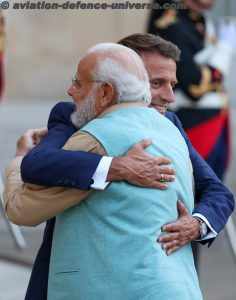 Our Prime Minister had visited in 2022 also, soon after President Macron had got elected. We’ve had a very high level of bilateral engagement across all fields of endeavour. I mean, clearly, this is a relationship of great trust, confidence. It is consistent and steady. It has continued to grow at a very rapid pace, evolved from a bilateral framework to a regional and global framework. We see France as a premier partner in the Indo-Pacific region. And for France, India is the major partner in the Indo-Pacific region. We’ve always had a history of excellent cooperation, multilateral forums. And increasingly, we now work across the full domain of global challenges, including on climate change, green energy, oceans, blue economy and biodiversity pollution.
Our Prime Minister had visited in 2022 also, soon after President Macron had got elected. We’ve had a very high level of bilateral engagement across all fields of endeavour. I mean, clearly, this is a relationship of great trust, confidence. It is consistent and steady. It has continued to grow at a very rapid pace, evolved from a bilateral framework to a regional and global framework. We see France as a premier partner in the Indo-Pacific region. And for France, India is the major partner in the Indo-Pacific region. We’ve always had a history of excellent cooperation, multilateral forums. And increasingly, we now work across the full domain of global challenges, including on climate change, green energy, oceans, blue economy and biodiversity pollution.
So in a sense, also to act as a bridge in an increasingly fragmented world, where to act as a bridge between the North and the South, as it were, because we are two countries with a high sense of strategic autonomy, we think independently. And therefore, it gives us more space, especially at a time when the world is caught up in a number of conflicts, which are pitting one’s power against the other. And so in these four years, I’d say two aspects are particularly important. One is that in all common interest areas, we can see concrete progress. Defense and security have been literally the key pillar of this partnership. But we’ve also had excellent engagement at the diplomatic level.
A lot of growth in economic ties has been there, both because of what is happening in India, but also because geopolitics is now affecting economic decisions. And one very exciting new area of our cooperation is digital technology, artificial intelligence and digital public infrastructure. But there’s a lot of interest here in getting more Indian students , deepen cultural ties and improve people to people exchanges, which is a good thing.
 The second aspect, I think, which is important is that our attraction in France has increased enormously. There is much higher visibility, much higher awareness of India. And our public outreach has been in politics, in think tanks, in business and in the domain of cultural education. In every area, we see we have really substantially enhanced our access and outreach.
The second aspect, I think, which is important is that our attraction in France has increased enormously. There is much higher visibility, much higher awareness of India. And our public outreach has been in politics, in think tanks, in business and in the domain of cultural education. In every area, we see we have really substantially enhanced our access and outreach.
But largely, we have people see us not just as an ancient civilization, but as a now emerging economic and technological power. So I think it’s been very satisfying, very fruitful tenure here. But it isn’t really about the tenure. It’s about, you know, continuing to build on what has been done in the past and leaving the relationship in a better shape for the future. This is, of course, a geopolitical relationship between both President Emmanuel Macron and our Prime Minister, which is heavily invested. And they have great personal relationship also. And both genuinely believe that this relationship will be important not only for our two countries, but also for the world in the future.
ADU. What is the role of the embassy in creating a bridge between the industry of the two countries, especially aerospace and defence industries?
Ambassador Jawed Ashraf. Let’s focus on the defense sector, because otherwise, industries are very big. I was very pleased to see our representation in Eurosatory this year. Even compared to 2022, I see both the quality of the products and technology to be much better, what is being done indigenously in India, but even more encouraged to see the level of ambition and confidence in exhibitors, both in terms of domestic production, but also exports.
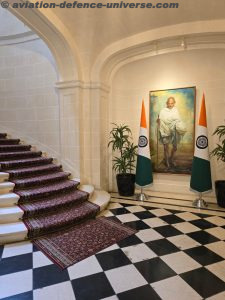 So I think we’re on the cusp of a major change in the Indian industry, both in the public sector and the private sector. And this is certainly a reflection of the success of Prime Minister’s vision of Atmanirbhar Bharat in defense industry, not just in terms of manufacturing, but also design development, ownership of IP. So we’ve become truly self-reliant, but also more sovereign and secure.
So I think we’re on the cusp of a major change in the Indian industry, both in the public sector and the private sector. And this is certainly a reflection of the success of Prime Minister’s vision of Atmanirbhar Bharat in defense industry, not just in terms of manufacturing, but also design development, ownership of IP. So we’ve become truly self-reliant, but also more sovereign and secure.
Because if you are not able to, if you’re constantly dependent on external sources for defence, then you really cannot call yourself very secure. It will increase a lot of efficiency, because you know, the inventory management will become much easier as we rely more and more on our domestic production. I agree with you also that we need to be present here in a much larger manner, whether it is Paris Air Show , Eurosatory or Euro Naval. I think the more we are present and more visibility we give to our people, it cuts two ways. People see what we are doing and our industries also get to see what are the global standards and trends. And they can at least hope to either achieve it themselves or with partnerships.
Now for us at the embassy, I have to say with some sense of satisfaction that we have been a very important driver of defence cooperation between our two countries. Defence cooperation has an operational aspect. It has information and intelligence aspect, but it also has a industrial aspect.
And I think over the past three – four years, we have been not just in terms of facilitating the acquisition processes or in terms of accelerating the processes with regard to big platforms, but we’ve been able to build some genuine bridges between the DRDO and the public sector with the French industry, but more important also with the Indian private sector. We have done both in terms of seeing, and our focus has been that it shouldn’t simply be manufacturing transfer of technology to India. We want collaboration that gives us the full capacity to design, develop, test, qualify, certify, understand metallurgy and know the integration of software with the hardware. Then we will be truly sovereign. Because manufacturing TOT sometimes leaves you with the crutches that you have to rely on for future areas. You don’t really learn much. So for every subsequent generation of technology, you have to keep going back. And I see this, you saw that at Eurosatory also. So this is where we are focused on, from whether we speak about now about the future military jet engines, whether it is for the fifth generation or the sixth generation. MRO is our major tie-up between the two countries.
ADU. Can you elaborate on MRO collaboration?
Ambassador Jawed Ashraf. We are, you know, working with Safran, which is fully prepared to do everything, teach us from A to Z. They have those Hyderabad facilities they’ve planned. So we are also looking at services like MRO, we’re looking at building a supply chain in India.
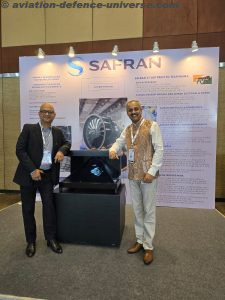 So we’re already going to do it for LEAP engine, which is already started. And apart from engine MRO, airframe and component are also our next steps. Dassault which makes Rafale and Mirage is already working on building a facility for maintenance, repair, etc. And for components for most of these we are working with small Indian companies, medium scale and large companies, with French companies, so that we develop supply chains in India. Please remember that when we focus too much on the end product, the platform, we often forget that much of that inside may be imported. And that doesn’t make us, that gives us the impression of being independent and atma nirbhar. But we are dependent on crucial technologies. So well, of course, no one can achieve 100% in the world, but to the extent 70-75% of supply chain development is possible. And I can tell you that some of the biggest French companies like Safran and Dassault say that once they work with Indian industry, SMEs, medium scale, to develop specific advanced components or systems, they find the response superb, excellent, they pick up very quickly, and they are delivering world standards.
So we’re already going to do it for LEAP engine, which is already started. And apart from engine MRO, airframe and component are also our next steps. Dassault which makes Rafale and Mirage is already working on building a facility for maintenance, repair, etc. And for components for most of these we are working with small Indian companies, medium scale and large companies, with French companies, so that we develop supply chains in India. Please remember that when we focus too much on the end product, the platform, we often forget that much of that inside may be imported. And that doesn’t make us, that gives us the impression of being independent and atma nirbhar. But we are dependent on crucial technologies. So well, of course, no one can achieve 100% in the world, but to the extent 70-75% of supply chain development is possible. And I can tell you that some of the biggest French companies like Safran and Dassault say that once they work with Indian industry, SMEs, medium scale, to develop specific advanced components or systems, they find the response superb, excellent, they pick up very quickly, and they are delivering world standards.
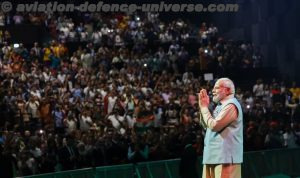 So our approach would be that we have a collaboration system that involves both public and private sector, research laboratories, but it isn’t just focused on manufacturing TOT, it should be design development, and design developments, qualification, certification, industrial maturation, testing, and supply chain development in India, so that we can then grow organically on our own, and not at every stage need fresh injection of technology. The third thing we are working on, this is very important, which is already an MOU that we signed during Prime Minister Narendra Modi’s visit to France last July as guest of honour for the National Day here, was to develop and manufacture in India defence equipment for third countries. And that’s an important instrument of diplomacy also, but also an exercise of power, besides creating economic opportunities.
So our approach would be that we have a collaboration system that involves both public and private sector, research laboratories, but it isn’t just focused on manufacturing TOT, it should be design development, and design developments, qualification, certification, industrial maturation, testing, and supply chain development in India, so that we can then grow organically on our own, and not at every stage need fresh injection of technology. The third thing we are working on, this is very important, which is already an MOU that we signed during Prime Minister Narendra Modi’s visit to France last July as guest of honour for the National Day here, was to develop and manufacture in India defence equipment for third countries. And that’s an important instrument of diplomacy also, but also an exercise of power, besides creating economic opportunities.
ADU. But isn’t it a sad story for Indian MROs which not only want but are also capable to do MRO activities for engines, airframe and components but because of the OEM having set up an MRO facility with heavy financial inputs , somewhere loose the battle of aatmanirbharta and Make in India?
Ambassador Jawed Ashraf. Well, I think everywhere the practice is that the OEMs do set up the MROs. Let’s say start with civil, if Tata’s Air India or Vistara or Indigo buy aircraft with LEAP engines, LEAP is the engine which power the narrow-bodied aircraft that Safran CFM is made. Now if I’m buying that engine, I want to, it’s the cost of the engine is nothing. It’s the MRO which is the critical part, the serviceability.
For that, they would prefer to go to an OEM rather than go to an, because they need that guarantee, right? It is the same story if you buy a car and whether you go to a local repair guy or you go to the authorised dealer. Now he may be good, but your confidence level is not the same and plus that means also that when you go to the company, they say I cannot do anything. You already got it opened. So there are a lot of issues in this. It doesn’t mean that the indigenous MROs do not have a role . Remember there’s a whole supply chain in the process. Like now if you look at M88 engine that goes into Rafale, when the numbers grow, they will set up an MRO. They already have a base level depot.
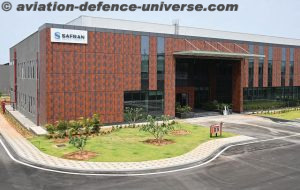 Now when that MRO happens and one, there is too much proprietary technology in this, too much. I mean if you look at technology like single crystal beta, fantastic technology. There’s three, four companies in the world have it. This is such proprietary technology. Why is it that so few people are able to make military jet engines in the world? Easier to make an airframe than military jet engines. Especially if the ones that are small and go into fighter jets and have to have very high thrust. So that kind of changes the whole metallurgy, the structure.
Now when that MRO happens and one, there is too much proprietary technology in this, too much. I mean if you look at technology like single crystal beta, fantastic technology. There’s three, four companies in the world have it. This is such proprietary technology. Why is it that so few people are able to make military jet engines in the world? Easier to make an airframe than military jet engines. Especially if the ones that are small and go into fighter jets and have to have very high thrust. So that kind of changes the whole metallurgy, the structure.
All of that changes. So these kinds of material compositions, the resilience. So I think it is, you will have different levels of sophistication and different levels of MRO requirements and some people will use with local MROs. And I think eventually it may happen that, you know, they may form collaborations because at the end of the day, I mean, this is a business proposition. You cannot force companies. No, no, absolutely. They have to choose their own partners. But they may work. Right, absolutely.
ADU. Has there been an enhancement in the level of military exchange between the two countries?
Ambassador Jawed Ashraf. We have increased the frequency and complexity of our traditional exercises, with the Air Force, Navy and the Army. We exercise. We are now moving towards joint exercises, sometimes  Air Force and Navy, sometimes Navy and the Army. And we are moving towards tri-services. That’s first in which there is progress. The second is that we are now doing more and more in a regional framework. So we will be sometimes in the Southern Union Ocean, sometimes the Eastern Union Ocean, sometimes near the Reunion Island in the Mozambique Channel or in the Gulf region. Then we have started moving towards trilateral or plurilateral exercises also. And that’s a new development which serves us well. And then the important is that we are entering new domains. So we have now participate in exercises relating to space security. So in all the dimensions, the bilateral, regional and new domain, we are increasing our
Air Force and Navy, sometimes Navy and the Army. And we are moving towards tri-services. That’s first in which there is progress. The second is that we are now doing more and more in a regional framework. So we will be sometimes in the Southern Union Ocean, sometimes the Eastern Union Ocean, sometimes near the Reunion Island in the Mozambique Channel or in the Gulf region. Then we have started moving towards trilateral or plurilateral exercises also. And that’s a new development which serves us well. And then the important is that we are entering new domains. So we have now participate in exercises relating to space security. So in all the dimensions, the bilateral, regional and new domain, we are increasing our
ADU. And what would a joint exercise on space security mean?
Ambassador Jawed Ashraf. Well, space security is basically a security of space. But, you know, it is where you simulate situations and then the two teams react to the situations created. We have participated in them but it’s all at an incipient stage. This is an all new area of joint collaboration and we are doing it as a strategic affairs need as well as for space industry.
ADU. France has a very heavy homeland security when it comes to police forces. So is there an interaction between these two in our country, the MHA there and our MHA parallel here?
Ambassador Jawed Ashraf. Yes, we do have different forums. We have an agreement on for NSG with their GIGN. For exercises, we have a very intensive and comprehensive dialogue on counterterrorism. We also discuss with each other on equipment that is needed for homeland security. There is an outstanding exchange on a regular basis on security related intelligence information.
ADU. We do have a very major research and development in India under the aegis of DRDO and also private sectors have their own research labs. So do we have some tie up with France when it comes to R&D?
Ambassador Jawed Ashraf. France is structured differently. So here the R&D is carried out within the 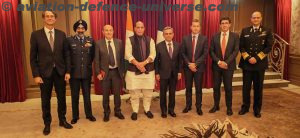 industry. There is no parallel body to DRDO. Here you have the Directorate General of Armament (DGA) , which is in a sense the oversight body, which is also the overarching licensing body. It also plans on acquisitions. It supports the industrialization effort. But the work is done in the industry and there and sometimes in universities. So we are working in a way that, you know, DRDO, of course, has a number of MOUs with the industry here on research and development with each of the, in different sectors. And it also is looking to under India-France Science and Technology Cooperation in involving universities in India, universities and laboratories in France and DRDO or a private sector in India and the defence industry here. So this helps to create an ecosystem of research and development in future technologies.
industry. There is no parallel body to DRDO. Here you have the Directorate General of Armament (DGA) , which is in a sense the oversight body, which is also the overarching licensing body. It also plans on acquisitions. It supports the industrialization effort. But the work is done in the industry and there and sometimes in universities. So we are working in a way that, you know, DRDO, of course, has a number of MOUs with the industry here on research and development with each of the, in different sectors. And it also is looking to under India-France Science and Technology Cooperation in involving universities in India, universities and laboratories in France and DRDO or a private sector in India and the defence industry here. So this helps to create an ecosystem of research and development in future technologies.
ADU. And we, last year, when the Prime Minister was here for the Bastille Day Parade, we also celebrated the 25th anniversary of the strategic partnership. What next?
Ambassador Jawed Ashraf. Next is the Horizon 2047, which is what was unveiled by the two leaders in July last year, which both celebrates the extraordinary progress in our relationship over the past 25 years, and then lays out a vision for the next 25. It covers almost everything. So if you see it broadly, there are five pillars in it.
One is, of course, you know, political and diplomacy, where we work together on global issues in UN reforms and, you know, global financial crisis, that sort of a thing is there. Then we, include the Indo-Pacific region and other regions of common interest, such as Africa. You have a defence component which has space and nuclear as a part of it.
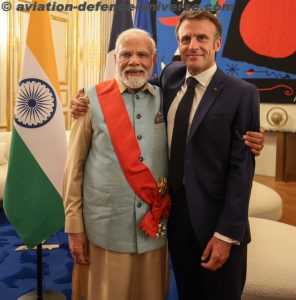 You have economy and technology as one and then you have these global challenges, which I mentioned earlier. And linked to that also is global development. I mean, in the context of the pandemic and pre-war, there is an inequity in the world. How do you deal with AI, for example, which is going to transform the world? So that’s another element. And remember, AI is going to be the most strategic thing going forward. It affects every aspect of our lives, and it will affect international relations in a big way. So that’s one.
You have economy and technology as one and then you have these global challenges, which I mentioned earlier. And linked to that also is global development. I mean, in the context of the pandemic and pre-war, there is an inequity in the world. How do you deal with AI, for example, which is going to transform the world? So that’s another element. And remember, AI is going to be the most strategic thing going forward. It affects every aspect of our lives, and it will affect international relations in a big way. So that’s one.
And then finally, we have culture, education, science and technology, people to people ties, etc. So these are pillars on which we are working. Clearly, the geostrategic element is very, very salient to our partnership.
ADU . Is there a strategic dimension to this new document?
Ambassador Jawed Ashraf. Yes it also has a strategic dimension as other things now, supply chain resilience, sovereignty in digital technologies. These are kinds of things which have as much salience today, as defence technology, or mastery of a space domain, cyber, or underwater, all of these. Why do I say these? Because there’s so much concentration today.
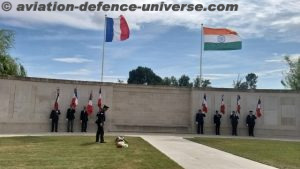 And on the supply chain side, we talked about the green transition, but most of the capacity, 80% is concentrated in China. So nations, medicines, biotechnology, semiconductors, these are the kinds of things that will be critical for the future. So they also become part of the strategic thinking.
And on the supply chain side, we talked about the green transition, but most of the capacity, 80% is concentrated in China. So nations, medicines, biotechnology, semiconductors, these are the kinds of things that will be critical for the future. So they also become part of the strategic thinking.
Minerals, critical minerals in particular. So and if you look to the future, I mean, control over or command over these technologies will have a profound impact on a nation’s sovereignty, its power, its place in the global situation. So defense and all of these things are there.
These aspects are also equally important in defining the strategic framework of a partnership. Also that we’ve had a very major tie up with the shipyards between the two countries for military use. We have the submarines, the scorpions, which were made in Bombay, as you know.
ADU. And is there a lull in this part of strategic partnership?
Ambassador Jawed Ashraf. No, so you’ve seen that in the case of this last year the Ministry of Defence placed additional orders for three submarines of Scorpene class. So that process is going on. That will take us and then they will be probably looking at future submarines as well. But the condition is that 65 percent must be indigenous content for the new submarine, which is a good thing. And that builds a lot of capabilities for future as well. And increases the supply chain in India.
I mean, you hear all kinds of reports. But I think one of the thought is that we should organically grow in what we have. So we have a solid, similar kind of technologies going forward. You keep upgrading, bringing in new technologies.
 Second, you shouldn’t destroy what you have built, meaning all, the biggest, most difficult thing is human skills. Most of the thing is the institutional capabilities and the infrastructure. So the idea is we keep using that as much as we can, both for our needs but also to export to others in the Indo-Pacific region.
Second, you shouldn’t destroy what you have built, meaning all, the biggest, most difficult thing is human skills. Most of the thing is the institutional capabilities and the infrastructure. So the idea is we keep using that as much as we can, both for our needs but also to export to others in the Indo-Pacific region.
And the third is that, you know, if you have, you know, distinct sort of projects, sometimes the gap between, you know, the, in augmentation of capacity can be unsustainably and unacceptably large. So that is why we are moving forward with a sort of an organic evolution.
ADU. So, and when it comes to land systems France has not been able to make a dent?
Ambassador Jawed Ashraf. So France had also over the past 30 years focused much more on air power and naval power because in their proctoring, there were no more land wars to be fought. All the wars will be distant and remote was there thought. But now it’s changing and they are developing the soldier of the future, the land army of the future through the Scorpion program. And we are always open. But as I said, that it is not about acquisition.
Now they have to come to India, come up with products that are competitive with the others and manufacture them in India. And remember in land systems, we have achieved a fair degree of indigenization on our own. So we don’t need perhaps that much over there.
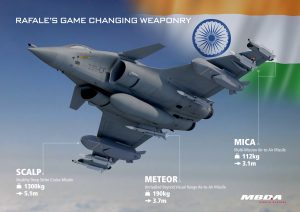 But I don’t think we work. See, one of the things that is important to bear in mind and which is often not taken into account, and I think I’d like to stress on that, is that our experience with different countries with regard to their licensing policies have been different. Okay.
But I don’t think we work. See, one of the things that is important to bear in mind and which is often not taken into account, and I think I’d like to stress on that, is that our experience with different countries with regard to their licensing policies have been different. Okay.
So when you look at a 30 year, 40 year time frame, it should not just be a techno economic choice or a techno commercial choice. We have to look at the licensing policies of the countries. And I would say that I don’t want to comment on any specific countries.
But that should be an important variable because you are acquiring something that may be there with you at 30, 40 years. If that relationship with that country gets complicated, or if that country has other foreign policy goals, will they at some stage turn off the tide? Or will they stop us from exporting that somewhere? Will certain critical components be denied?
Or if we’re at a war with the country and they consider that country to be a friendly country, will they say you can’t use that weapon or don’t supply it to us? These factors should be taken. I don’t see much discourse on that in public domain. The government of course thinks about these things and it should. So that licensing issue, what is the policy and how is it institutionally structured in the country? Is it a one office? Is it goes to a parliament? How does it work? Because there can be many complications and that’s something which I’d like to stress on.
ADU. Is ease of doing business perfect in France?
Ambassador Jawed Ashraf. Of course, ease of business between the two countries. Ease of business is, you see, when someone wants to sell you something, then they always do these. But it’s really a question of and we’ve experienced that in the past.
 During wars or after the nuclear test or when we had this Article 370 abrogation, different countries reacted differently. So we’ll have to take all of this into account, which is why it goes back to the point that Prime Minister makes, which is Atma Nirbhata and is so important for security and sovereignty. Yes, absolutely.
During wars or after the nuclear test or when we had this Article 370 abrogation, different countries reacted differently. So we’ll have to take all of this into account, which is why it goes back to the point that Prime Minister makes, which is Atma Nirbhata and is so important for security and sovereignty. Yes, absolutely.
And there is, when we buy things from outside, always there is, you know, in today’s world, there is a complication which could arise with the cyber threat. Now, that’s sort of, when we are buying things from outside, how do we cater to that and between the two countries? That’s for you to ask. You know, you’ve raised a very important question and I think we are extremely curious.
ADU. Is cyber threat a very major issue between the two countries, diplomatically, keeping in mind?
Ambassador Jawed Ashraf. So that’s where it goes back to, that you, when you have a defence relationship, it isn’t just a technical or economic or a commercial issue, it’s a trust issue. A trust issue, yes. That trust is the most important component to this.
I mean, different equipment may have a 19-20 kind of difference. But it is also about trust and it is about how much you can depend. But you mentioned specifically cyber, which means communication.
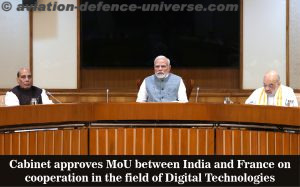 Now, that’s where Government of India is really, really focused. I mean, our Defense Ministry, our laboratories, our, you know, industry is on developing our own indigenous systems that are resilient to any kind of attack. And that if we buy an equipment from outside, then how do we manage it? That’s been an important dimension.
Now, that’s where Government of India is really, really focused. I mean, our Defense Ministry, our laboratories, our, you know, industry is on developing our own indigenous systems that are resilient to any kind of attack. And that if we buy an equipment from outside, then how do we manage it? That’s been an important dimension.
Of course, I mean, there are countries with which we have that level of trust, where we don’t expect cyber. The two things can happen, either they disable the system or the systems become, or they are able to, for example, listen to communications. Yes.
So, that’s why you need to develop your own communications and your own crypto systems and your own, you know, digital, digitally enabled technologies of the products. Government also is now… No, I think the government is very clear and believe me, we are doing a good job. They’ve also done some thing where they’ve insisted that it’s only going to be Wipro or Infosys or TCS.
Just three of them doing it. There are two aspects to it. One is the aspect of who does it. The second is how resilient your system is. And remember, this is not an easy task. Please remember, if you are buying today an equipment from outside, these are usually highly integrated, digitally driven systems.
Yes, absolutely. So, it’s not like you are hanging a picture on a wall or, you know, it means you might have to change the whole software and systems inside. Right.
Which is why we keep coming back to this point that we want to be able to develop our own products and things so that it has that sort of indigenous resilience to it. So, it’s not all that simple. Sometimes, you know, patching an equipment with our own software retrospectively may not work. But it’s also best to do it in a… Indigenous way. Right, absolutely.
ADU. What are your views on manufacturing ToT and is indigenisation an answer?
Ambassador Jawed Ashraf. When we look ahead to our defence, future of our defence industry, so one of course is we talk of platforms where we have to also talk of weapons and munitions because that’s what’s the most important part.
And it isn’t just about indigenous, but it’s also about whether it is cutting edge and superior to what your adversity is. And what it does is it reduces the inventory, we have much more confidence in what we are able to do. And the third, of course, is developing a full range of supply chain of components, assistance, advanced materials, because we are very weak in advanced materials.
So, that’s one. Then we have to focus not on the easy way out of MTOT. When there’s manufacturing TOT alone, it keeps you dependent, but also they don’t supply you everything.
Yeah, so then you’re dependent. So, when, how you grow organically become very difficult. So, we should choose what we, who we work with based on the willingness to give us the full capacity from design stage to development stage, to advanced materials stage, to, you know, industrialization, testing, qualification and certification.
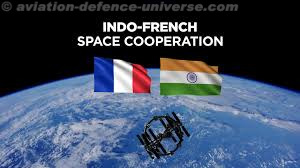 Without the capacity to, for certification, none of these products would be accepted. Yeah, absolutely. And that we now constantly look at skill building in India. That’s something which we have to pay a lot of attention to, because these are industries that require very high level of skills. And the IP ownership becomes important, but that will also become an issue. So, ultimately, I think our policy that the government is currently following that sometimes saying, OK, these list of items cannot be imported.
Without the capacity to, for certification, none of these products would be accepted. Yeah, absolutely. And that we now constantly look at skill building in India. That’s something which we have to pay a lot of attention to, because these are industries that require very high level of skills. And the IP ownership becomes important, but that will also become an issue. So, ultimately, I think our policy that the government is currently following that sometimes saying, OK, these list of items cannot be imported.
They take out the list every alternate month. It’s a good thing, because whenever we have been forced to do things on our own, we finally find a way to do it. You look at our space program which is a great example of what, working together from the beginning, design, development, all the way. Our engineers came here to France. They learned how to design and engine testing. So today we are totally autonomous. I mean, we can do what we want. When we were forced to do it, our own missiles or our own strategic program.
ADU. Is Atmanirbhar Bharat the only solution?
Ambassador Jawed Ashraf. So in every domain, and I think given the shape of the world, where you don’t know in the flux of time who your friends, who your adversaries, who will be what, when, need to develop that confidence that we can rely on our own industry. We also have joint ventures between the two countries, which are very strong. So in France, I would say that probably the most trusted. We’ve got MBDA with BDL. And we also have one with L&T. No, so we have the number of them. I mean, Safran alone has, Dassault also has, all of them. For France, and this is an important point to conclude with this, is that France has been the most steady and trusted part. Even after the nuclear test in 98, it was the one country in the West that did not sanction us or did not disrupt the relationship and continue to actually build on it.
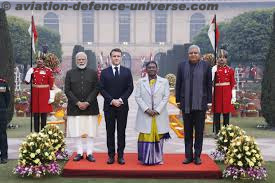 It had then Prime Minister Atal Bihari Vajpayee to came here in September as his first bilateral visit after the nuclear test. Second, it has had the history since 1950s of being part of India’s industry. Today, every helicopter in India that is made in India flies on a French engine that is being manufactured by Algeria.
It had then Prime Minister Atal Bihari Vajpayee to came here in September as his first bilateral visit after the nuclear test. Second, it has had the history since 1950s of being part of India’s industry. Today, every helicopter in India that is made in India flies on a French engine that is being manufactured by Algeria.
We’ve had every generation of French military aircraft, but they have a very wide network of industry supply chains. And the most important thing is, perhaps more than any other country, they are willing to do what we would like them to do, which is to work with us on the full range of capabilities from design to certification, to build a truly indigenous capacity in India. And, you know, and you see that with all the major partners.
And I think that’s and their licensing policy is the most, you know, secure one from our point of view. We have never seen any kind of irritant or disruption. Yeah, because we have each generation of aircraft we’ve got in India, I mean, starting from, you know, you’ve got all of them, all French aircraft are there in the Air Force.
As told to Sangeeta Saxena
